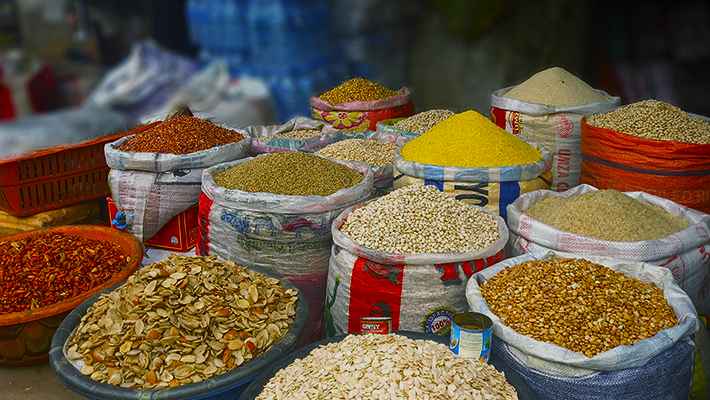CURRENT REPORT BLOG In the wake of economic challenges, Nigerians are grappling with a significant surge in the prices of staple foods, with increases exceeding 40% within a mere two months. A comprehensive a market survey conducted recently unveils the stark reality of this alarming trend.
As of February 11, 2024, prices of essential commodities such as Rice, beans, garri, groundnut oil, tomatoes, and bread have skyrocketed, leaving consumers reeling from the financial strain. The survey highlights staggering price hikes across various food items, painting a grim picture of the current economic landscape.
Among the findings, the price of a 50kg bag of Rice has surged from N35,000 to a staggering N65,000, while Beans has seen a remarkable increase from N800 to N1,600 per mudu measurement. Similarly, Garri now commands a price tag of N39,500, up from N22,000 for a 50kg bag. Other essentials, including groundnut oil, noodles, eggs, sugar, bread, Indomie, Semovita, and tomatoes, have all experienced significant price escalations, adding to the financial burden faced by consumers.
Analyzing the data reveals alarming percentage increments across various food items. Rice has witnessed a staggering 46.2% increase, while beans and sugar have surged by 50% and 52.9%, respectively. The relentless climb in food prices underscores the dire impact on household budgets and living standards.
The National Bureau of Statistics reports a concerning rise in food inflation, reaching 33.93% in December. This troubling statistic reflects the broader economic challenges facing Nigerians, who are grappling with the harsh realities of soaring living costs.
In response to these developments, citizens have voiced their concerns, lamenting the high cost of living under President Bola Ahmed Tinubu’s administration. The sharp rise in food prices exacerbates existing economic strains, amplifying the urgency for swift and effective measures to address the root causes of inflation and alleviate the burden on ordinary Nigerians.












